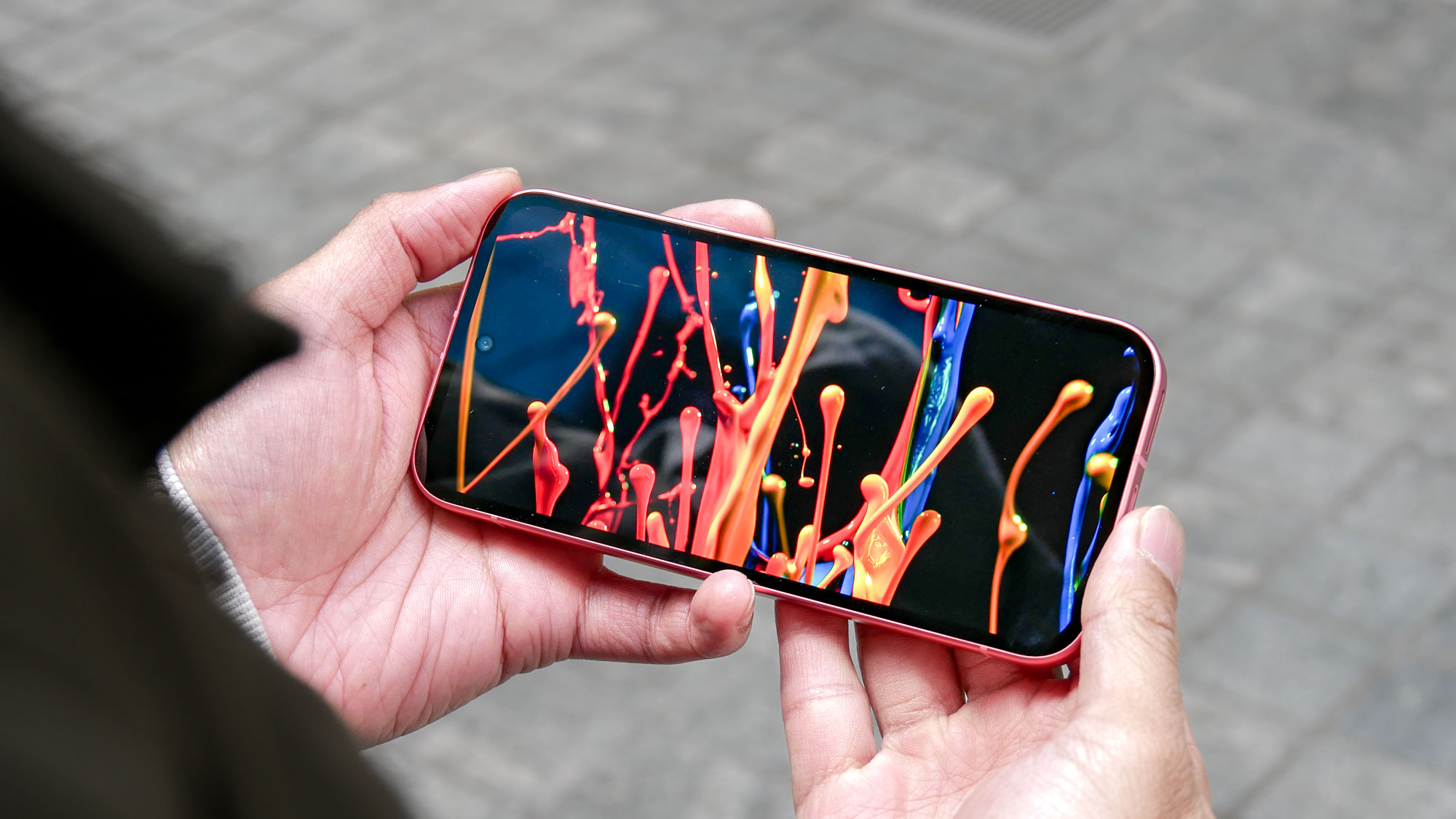Does screen time really affect sleep quality?
We explore if, and how, looking at screens in the evening might be impacting on your sleep
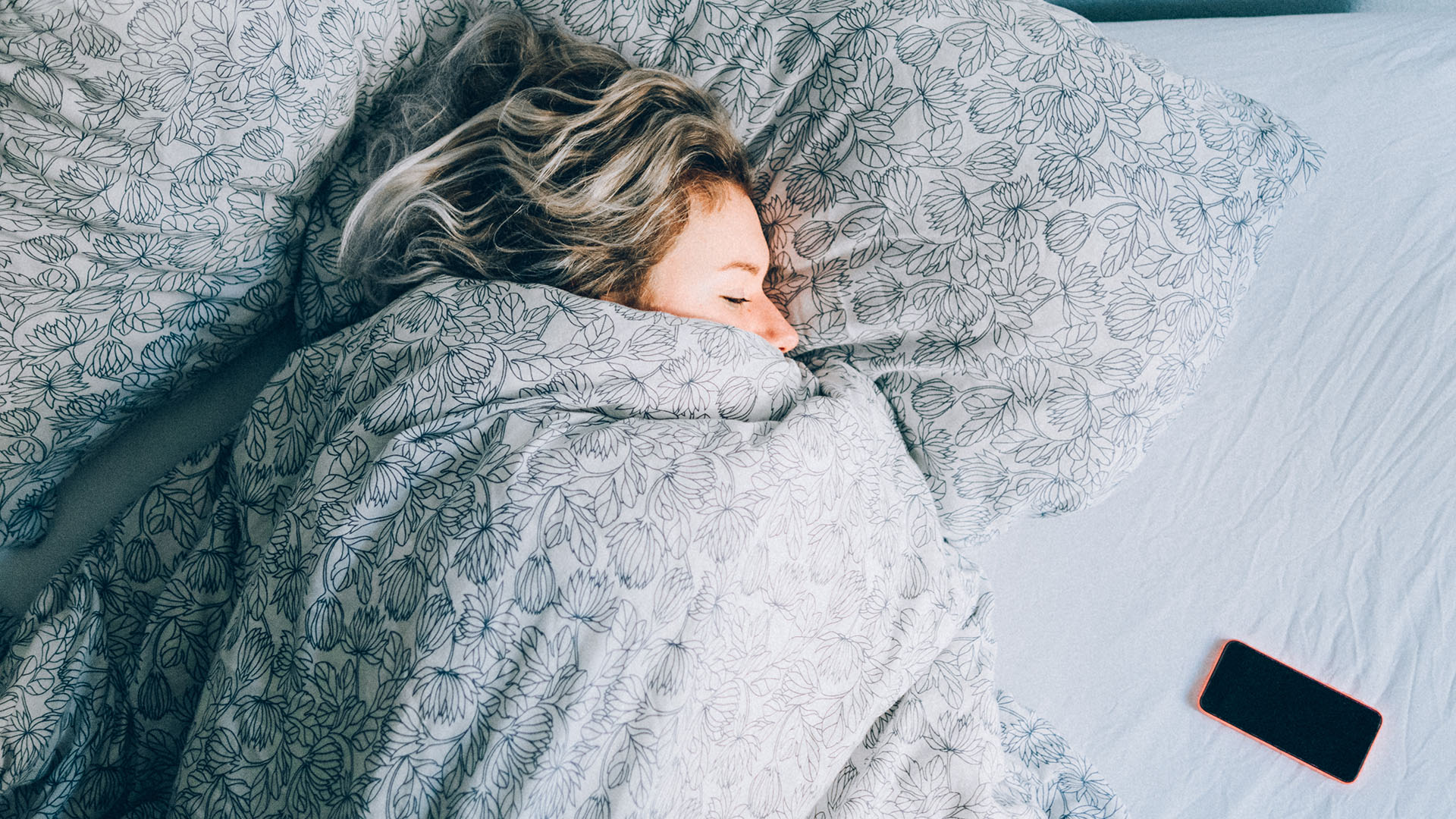
Woman snuggled up in a duvet in bed, with a phone next to her
(Image credit: Getty)It's widely accepted that scrolling your way to sleep isn't the way to a great night's rest. Most sleep hygiene guides will tell you to down your devices in the hours before bedtime if you're to get a full, refreshing 7-9 hours sleep.
But is catching up on Twitter, or watching a couple of YouTube videos from the comfort of your bed, really such a bad way to wind down for the night? Despite all the advice, a lot of us are definitely still doing it. Let's take a look at exactly why experts advise against late evening screen time, and how much of an impact it could really be having on your quality of sleep.
Does screen time affect quality of sleep?
Yes. There is plenty of convincing evidence that late evening screen use does indeed lead to poorer sleep quality. Research suggests that using a screen in the hour or two before bedtime use can suppress melatonin production, increase the amount of time it takes you to get to sleep, reduce the amount of REM sleep you're getting, and lead to grogginess the next morning.
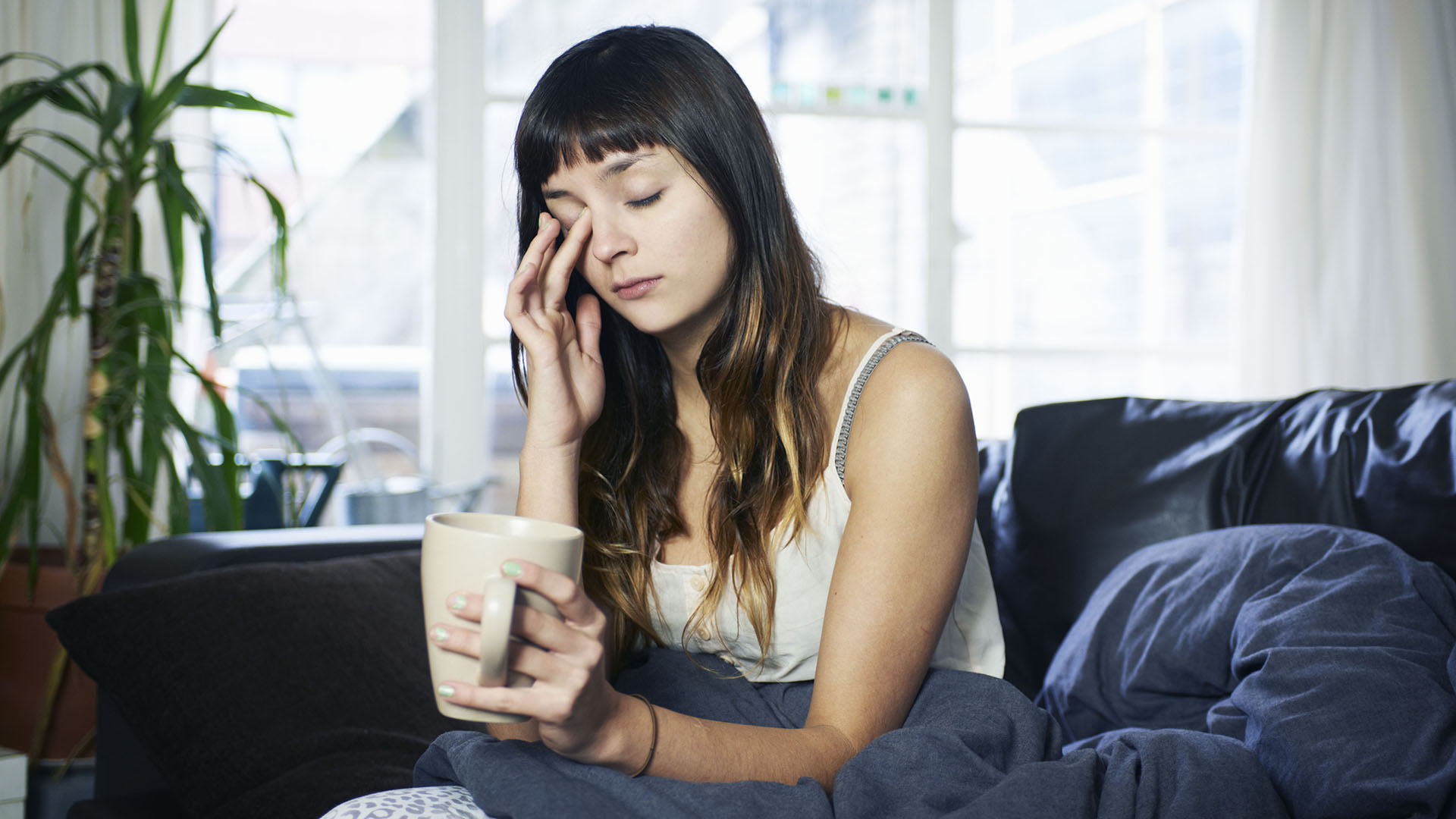
Let's take a look at some of the research to back this up. In the National Sleep Foundation's 2022 Sleep in America poll, 58% of respondents said they looked at screens 'very or somewhat often' within two hours of bedtime.
This large-scale study is based around a 'Sleep Health Index' (SHI), which is a score based on sleep quality, sleep duration and disordered sleep. Those who often used screens around bedtime achieved a significantly lower SHI than those who did not, and reported worse sleep quality, more problems getting to sleep, and shorter sleep duration, too. The same patterns were found in previous Sleep in America polls.
A smaller study from Brigham and Women’s Hospital focused on the biological effects of reading on a light-emitting device before bedtime, compared to reading a printed book before bedtime. Those reading on the e-book were less sleepy in the evenings, took longer to fall asleep at bedtime, and were less alert the following morning. They also showed a delayed circadian clock and reduced levels of the sleep-promoting hormone melatonin.
Those using a device also had a delay in timing of REM sleep, and less REM sleep overall. REM sleep is vital for healthy brain development, and plays a key role in emotional processing and memory formation.
Why do screens affect sleep?
There are a few ways in which using devices could be impacting on your quality of sleep.
Sign up to get the BEST of Tom's Guide direct to your inbox.
Get instant access to breaking news, the hottest reviews, great deals and helpful tips.
One element is to do with light. A key way that your body regulates its sleep-wake cycle is by responding to light signals. Light suppresses the production of melatonin (a hormone that makes you feel sleepy). Exposure to light or dark signals at the wrong times can really mess with your sleep-wake cycle and disrupt your quality of sleep – that's why waking up in winter can be difficult, and blackout blinds that block early morning sunlight are a good idea in the summer.
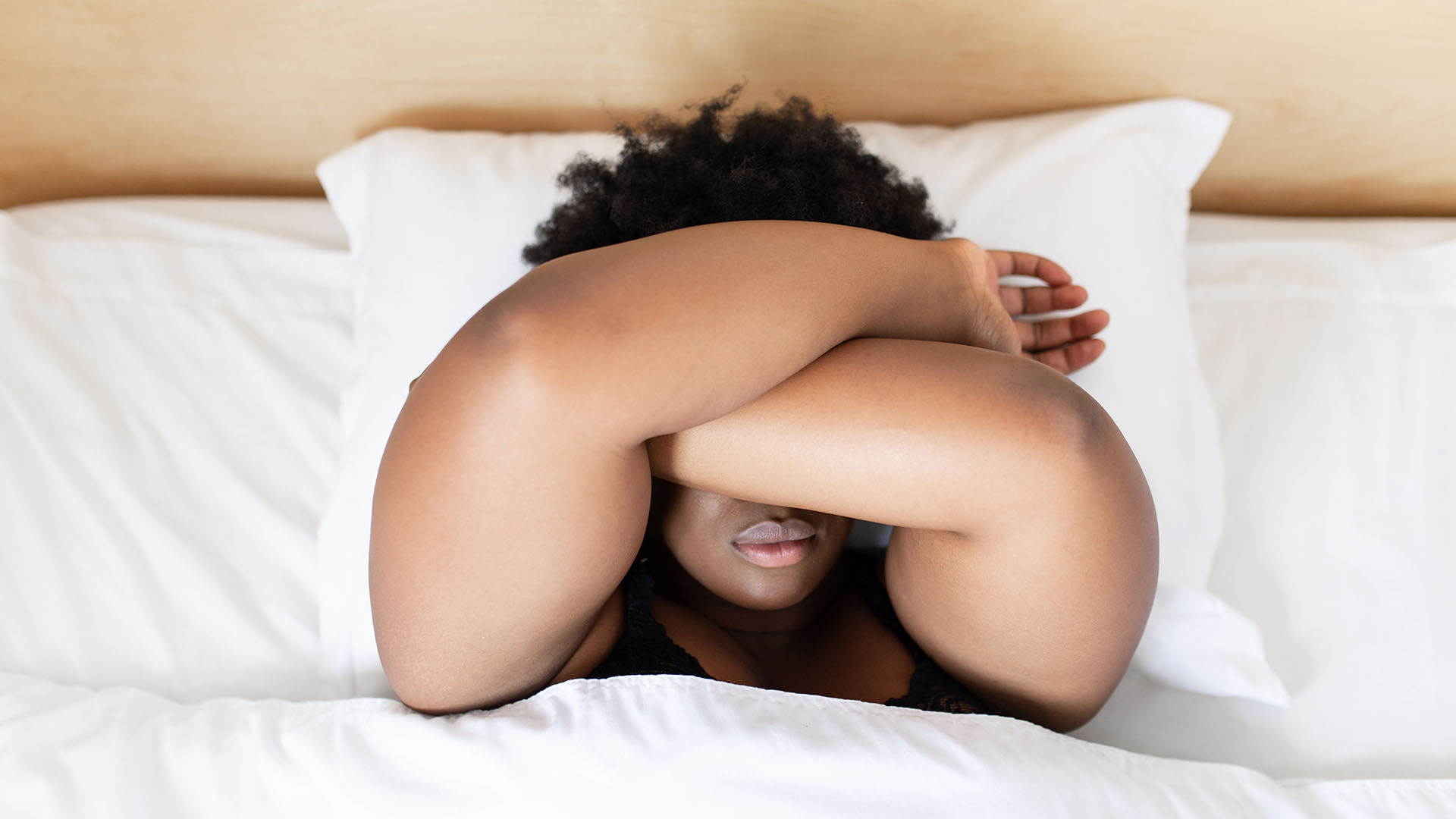
Although all colors of light affect your circadian rhythm, blue light has the most significant impact on your body clock. Blue light is the part of the visible light spectrum that has the shortest wavelength and highest energy. The sun is a major source of blue light, but this is also the kind of light emitted by the LEDs illuminating your TV and device screens (albeit in much smaller quantities).
Blue light boosts alertness and makes you feel energized, which is great in the mornings, when you need to wake up and start your day, but less great when it's time to wind down for the night. It follows, then, that holding a bright phone screen six inches from your face for an hour before bed is not ideal – it's sending the signal to your brain that it should be awake and alert, whereas really the opposite is what you want. Limiting your exposure to bright light in the run-up to bedtime will help your body know it's time to wind down for sleep.
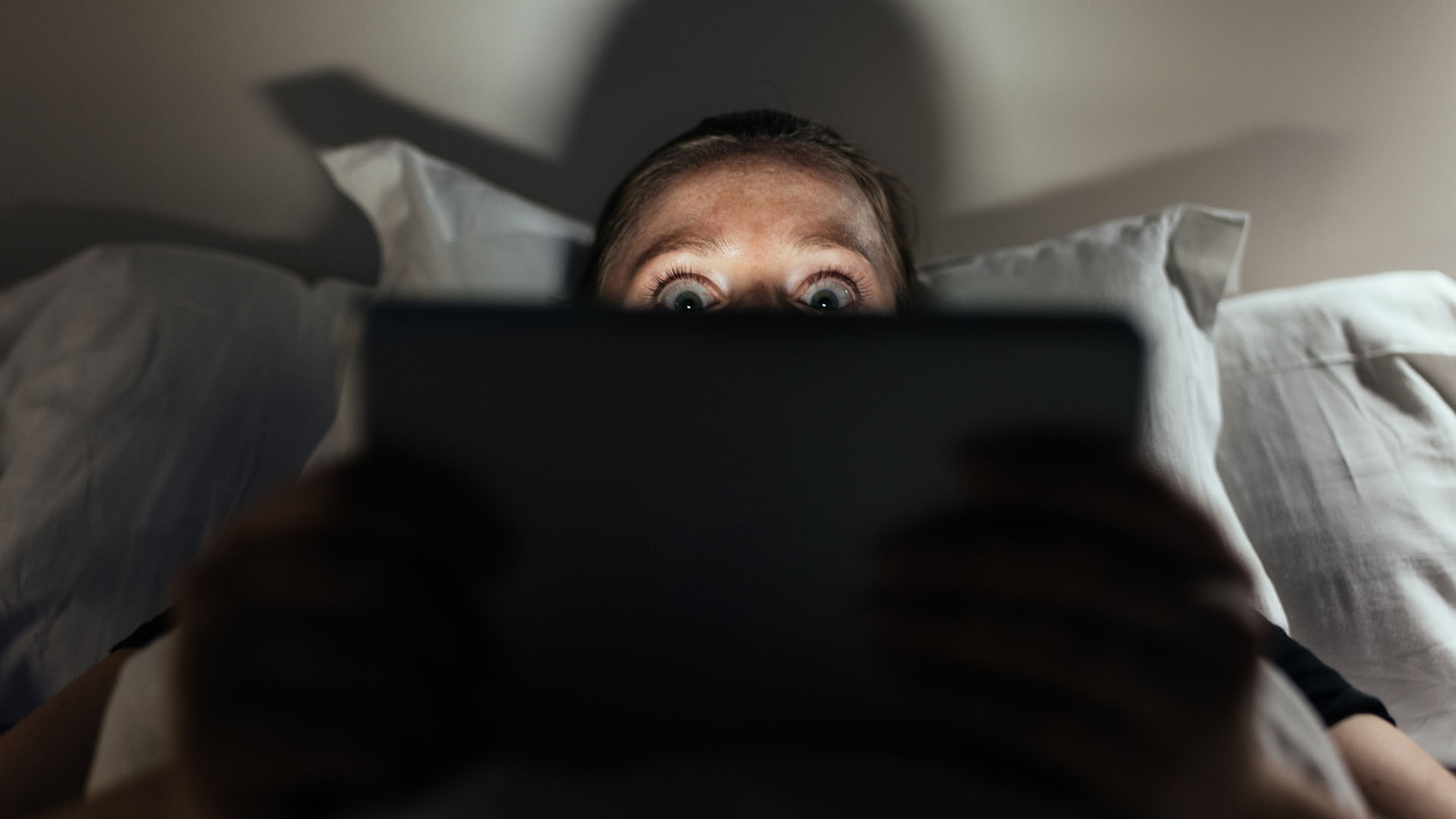
Some research suggests blue light from screens might not be as bad for your sleep as first thought, but you should still aim to limit phone usage before bed. Another aspect of device use that could be disrupting your sleep is to do with the content you're consuming. To wind down, you want to be avoiding too much mental stimulation, including stressful or emotional activities. High-octane video games, gripping TV shows, heated social media interactions, or even catching up on the news (good or bad) from the day can all prevent your body from relaxing. Ditto using your device to check your work messages or get prepped for the following day.
How long before bed should you turn off screens?
Ideally, you want to just avoid screens altogether in the hour (or perhaps two) before bed. This is the period in which research suggests screens use can have the most disruptive effect on your sleep cycle.
Tips for avoiding tech in the evenings
1. Put your phone in another room
It can be all too easy to absent-mindedly pick up your phone or check up on something playing on your mind in the middle of the night. Remove temptation by leaving your it out of reach and out of sight overnight. Ideally, put it away in another room altogether. For your alarm, swap in an actual alarm clock, or use a voice assistant.
2. Get in a routine
A lot of the advice surrounding healthy sleep habits is to do with building a consistent routine, so your body recognizes the pattern of winding down and waking up. Everyone will tell you that you should be waking up and going to the bed at the same time each day (even weekends), for example. Build that no-screens period into your daily bedtime routine, so it becomes a habit.
It might help to set an alarm so you don't get caught up in whatever you're doing and forget to down devices. You could also adopt a routine such as the 10-3-2-1-0 sleep method, which offers a structure as to when to stop working, eating, and drinking coffee too.
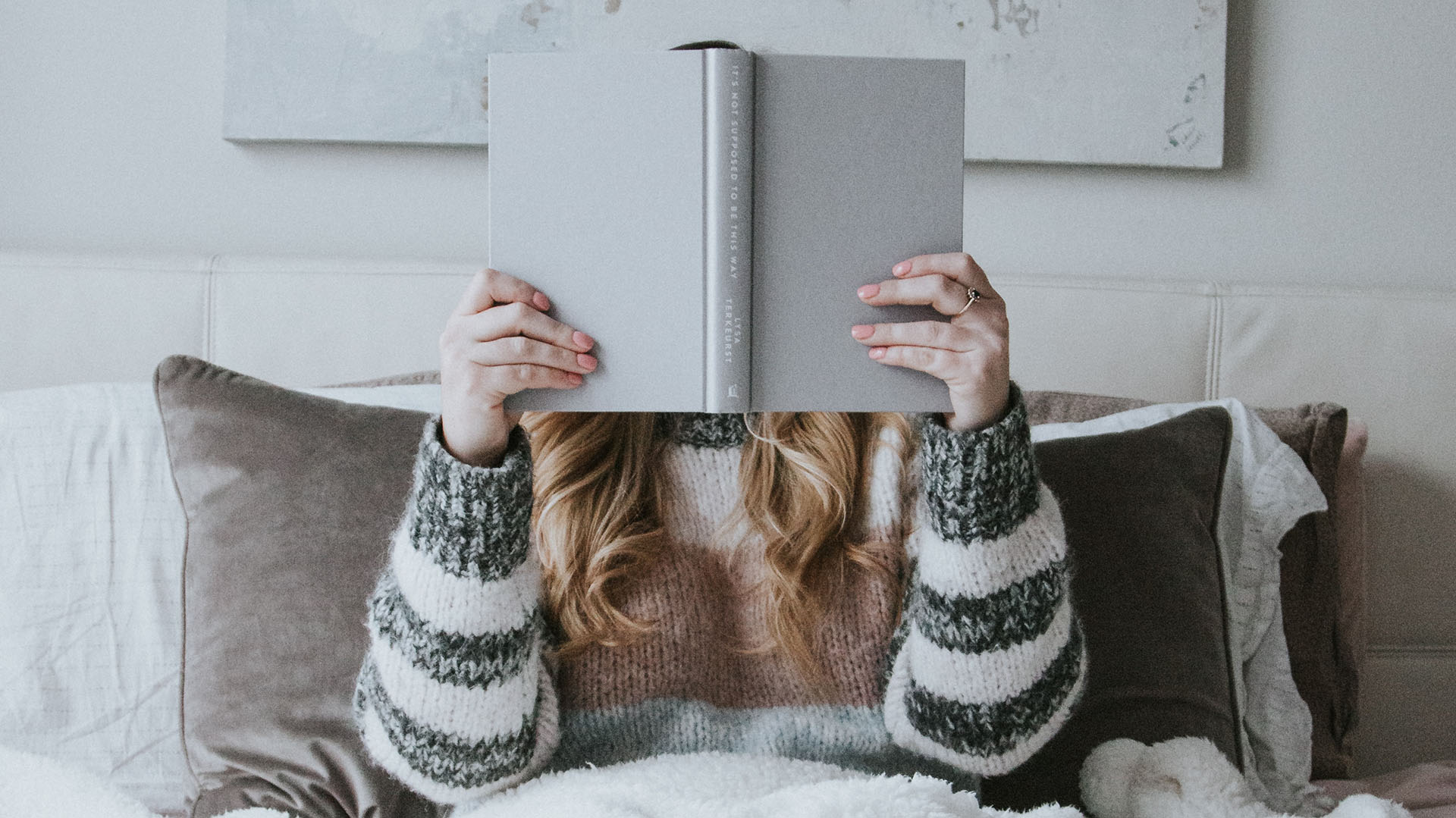
3. Find some analog activities
Once you commit to avoiding screens, it can quickly becomes clear how many of our evening activities actually use a screen. Some soothing activities that aren't device-based include taking a bath, sorting out your lunch or outfit for the next day, doing some light yoga, or reading a book (so long as it's on paper, rather than a backlit e-reader).
How to lessen the impact of screens before bed
If you can't, or don't want to give up devices in the evenings, there are some steps you can take that might help lessen the effect this habit is having on your sleep.
1. Don some blue light-blocking glasses
These are glasses that have filters in their lenses to absorb or block blue light, and sometimes also UV light. Widely available online, these are designed to reduce the amount of blue light waves making their way into your eyeballs when looking at a screen.
2. Adjust your screens
There are a few ways you can make the overall effect of your device screen less glaringly bright. One is to literally dim the screen, although obviously you don't want to end up straining your eyes to see what you're looking at. Many apps now have a dark mode or night mode, which changes the main background colour of the background from white to black. You can also install blue light-filtering apps for phones, tablets and computer screens. These are designed to remove a lot of the blue light without impacting on visibility.
For more advice, check out our tips for how to get a better night's sleep naturally, or if you suspect it might be your bed setup that's working against you, our guide to finding the best mattress for your sleep style.

Ruth is currently Homes Editor on Tom's Guide's sister site TechRadar, where she reviews and writes about everything from air fryers to vacuum cleaners to coffee machines, as well as the latest smart home gadgets. Prior to making the shift to Homes, Ruth was Tom's Guide's Sleep Editor. A certified Sleep Science Coach, she has tested more mattresses than her small flat can handle and will talk at length about them to anyone who shows even a passing interest.
